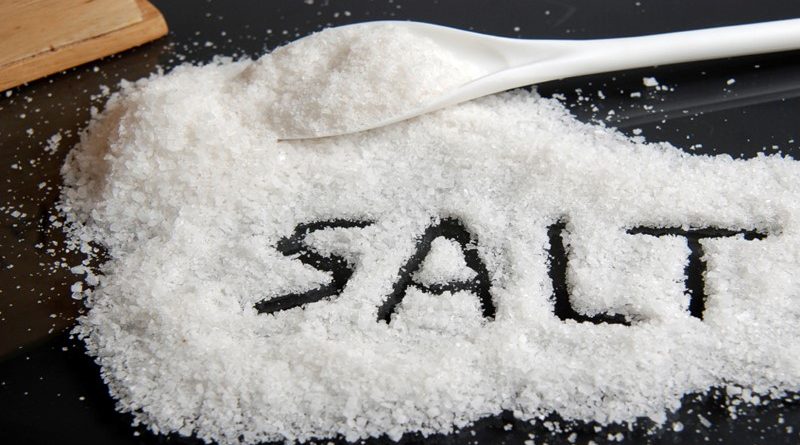The World has a huge problem with excessive salt consumption and millions will die without action, the WHO warns
If governments don’t immediately enact stricter salt regulations, seven million people might pass away from diseases associated with excessive salt consumption before the end of the decade, the World Health Organization warned on Thursday. Governments are being urged by the report’s authors to impose stricter sodium targets for food, mark salt content more prominently on packaging, and raise public awareness of the risks consuming a lot of salty food poses to one’s health.
According to Francesco Branca, director of the WHO’s Directorate of Nutrition for Health and Development, excessive salt consumption is the leading risk factor for a poor diet and causes 1.8 million deaths annually.
According to the WHO, eating too much salt is one of the causes of cardiovascular disease, which claims the lives of an estimated 17.9 million people annually. Additionally, it can result in major medical disorders like strokes, which claim the lives of 5 million people annually around the world.
Branca said that by mandating limits on the amount of salt that the food industry is allowed to add to processed foods, governments could save a lot of those lives. She added that this accounts for the majority of the sodium consumed by most Americans, as opposed to salt that is sprinkled on food in the kitchen. This truly doesn’t cost anyone any money, according to Branca. It’s a straightforward intervention, but it works very well.
The average person worldwide consumes 10.8 grams of salt per day, which is more than double the amount that the WHO and the Centers for Disease Control and Prevention advise against taking, which is no more than a teaspoon. While sodium, which makes up 40% of salt, is a necessary nutrient, it also constricts and stiffens blood vessels.
Graham MacGregor, a professor of cardiovascular medicine at Queen Mary University of London who was not involved in the paper but advocates for salt reduction, said that if you retain more salt in the body, it gradually raises blood pressure. Strokes, heart attacks, or heart failure are then brought on by the elevated blood pressure.
The American Heart Association, the American College of Cardiology, and the National Academies of Sciences, Engineering, and Medicine are just a few of the health groups that advise people to drastically cut their sodium intake. While some research in recent years challenging it, that position is supported by decades of scientific evidence (including assessments of hundreds of published publications that highlight sodium’s health hazards).
The WHO is seeking to reduce global salt intake by 30 percent from 2013 levels, a 12-year objective agreed upon by all 194 of its member states at the time — but which none is on course to fulfill, it said Thursday. Branca stated that he was thinking about extending the goal until 2030.
Only nine of the WHO’s members, or 5% of its members, have implemented sufficiently extensive steps to curb excessive salt consumption, according to an assessment of salt reduction policies that had been put into place by world governments.
Governments are being urged by the U.N. agency for health to raise public awareness of the risks associated with an excessively salty diet and to make salt content information more prominent on packaging. Given the huge percentage that is utilized by food manufacturers rather than added by individual customers, WHO authorities feel that obligatory salt content levels are also necessary to wean the globe off its dangerous salt habit.
Telling people to cease salting their meals has no purpose, MacGregor added. That is already present.
According to the Food and Drug Administration, packaged and prepared meals account for more than 70% of the salt in the average American’s diet rather than salt from a salt shaker at home.
The FDA said in September that it would modify the regulations governing nutrition labels on food packaging to make it clear that they are “healthy.” Manufacturers would have to abide by strict guidelines for sodium and other nutrients.
The Consumer Brands Association, which defends 1,700 well-known brands including Pepsi and General Mills, responded by saying the new regulation was excessively onerous and recommending “revising nutrient standards to modestly higher levels for added sugars and sodium.”
Branca of the WHO claims that one factor contributing to the continued use of so much salt in food production despite recognized health dangers is that people’s taste buds have become hardened to high salt content over time. Branca stated, “You think that if you don’t have that much salt, the food is bland. You expect a particular level of salt.
“Manufacturers don’t want to take the initiative to lower sodium if there’s a rival that has a higher content of salt,” he added, suggesting that governments push food makers to cut those levels through obligatory objectives.
Scientists claim that lowering salt intake has immediate effects. According to the CDC, most patients experience a drop in blood pressure within weeks, and their sensitivity to salt soon returns.
Your taste buds will become accustomed to less salt, allowing you to more fully appreciate the other flavors, according to Branca. He says it might even make your food taste better. SOURCE: the washington Post. Article by By Leo Sands




